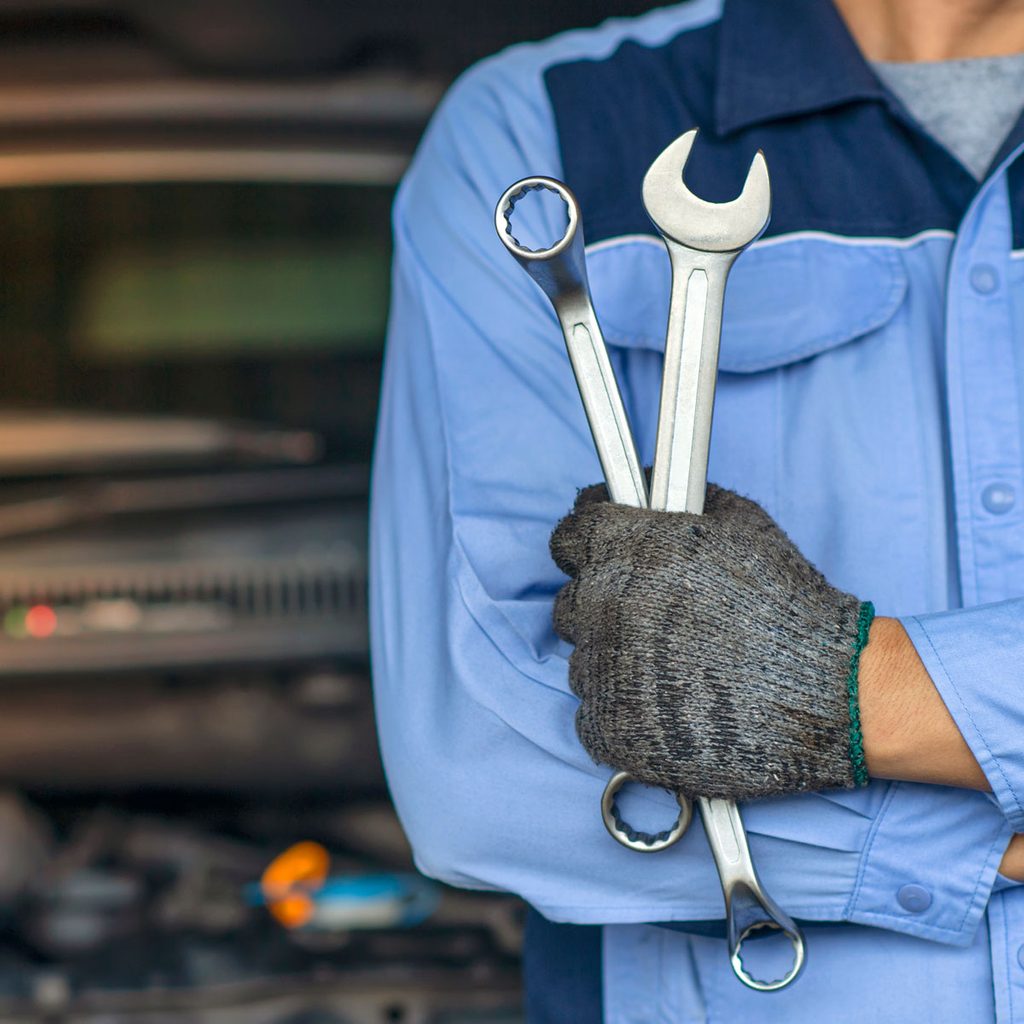Car Tune Up Basics: Everything You Need to Know
Updated: Mar. 14, 2023

Every vehicle engine needs tuning up from time to time. Learn about tune-up basics that help keep your vehicle running smoothly.
Tune-ups are all about engine maintenance so your vehicle starts well, runs smoothly and operates as efficiently as possible. Today’s cars need tune-ups far less often than older vehicles did, but regular work is still required. All the basic tune-up tasks you’ll read about here are possible for any handy person working in a driveway or garage with a set of sockets and wrenches. More advanced tune-up work involving diagnostic equipment is best handled by a professional.
Before you get started, obtain a copy of the maintenance schedule for your vehicle. This will alert you to exactly which engine tune-up procedures are required at specific mileage intervals.
On This Page
Signs Your Car Needs a Tune-Up
The odometer reading is the most important sign you need a tune-up. All vehicle manufacturers specify when to complete engine maintenance procedures based on mileage, and it’s best to follow their guidance. Poor starting, erratic running, decreased gas mileage and lack of power can all be signs that your car really needs a tune-up badly, but you shouldn’t let things go that far.
Why Does a Tune-Up Help?
Vehicle engines include many parts working together. As these parts wear down and deteriorate with usage and time, they change slightly. A tune-up re-establishes the critical adjustments and components needed for best engine performance.
What’s Included In a Tune-Up
This varies depending on the design of the vehicle and the mileage, but these are some of the basics:
Air Filter Replacement
Your car engine consumes a much greater volume of air than fuel, and this air needs to be clean before it enters the engine for combustion. Most automotive air filters have pleated paper elements, and although you can clean air filters after removing them from the vehicle, it’s best to replace a dirty air filter with a new one. Specific air filters are made for your particular make, model and year of vehicle.
Spark Plug Replacement
There’s one spark plug for each engine cylinder, and most vehicles are designed to allow at least reasonably easy access to spark plugs. If you’re changing spark plugs yourself, apply anti-seize compound to the threads of each new plug before installation so they come out more easily next time.
Ignition Component Renewal
As with spark plugs, the distributor cap, rotor and spark plug wires are all part of your vehicle’s ignition system. The distributor cap accepts all the spark plug wires and is part of the system that distributes gas-igniting sparks to different engine cylinders as needed. The ignition rotor (not to be confused with a brake rotor) sits inside the distributor cap and is responsible for the direction of electricity to the various contacts within the distributor cap. Spark plug wires need to be replaced less often than the distributor cap and rotor.
Fuel Filter
As dirt accumulates in a fuel filter, it slowly restricts fuel flow to the engine. Fuel filters are usually inexpensive and easily changed, so it makes sense to install a new one regularly before your engine shows signs of trouble. Lack of power and stalling after a few minutes of running can be signs of a clogged fuel filter.
PVC Valve
This simple, emissions-related component wears out over time and is usually easy to change.
Computer Diagnostics
This requires special equipment but gives insights into the performance of the fuel system, ignition system and emissions system. It can alert you to weak engine components before they start to cause trouble.
Change Engine Oil and Filter
Strictly speaking, changing engine oil is not a traditional part of any tune up, but it is vital to change oil at the intervals specified by the manufacturer. So you might as well change the oil while you have the hood up for the tune-up tasks.
How Much Does a Tune-Up Cost?
The cost of a tune-up varies depending on the work being done and the make and model of your vehicle. The most basic tune-ups involve nothing more than changing spark plugs, and this can typically cost $50 to $150 depending on your vehicle and labor rates. A more extensive tune-up specified for high-mileage vehicles can easily cost more than $1,000.
